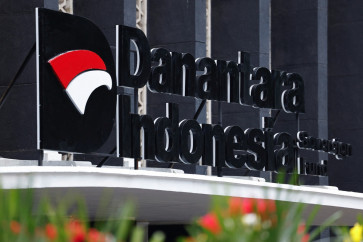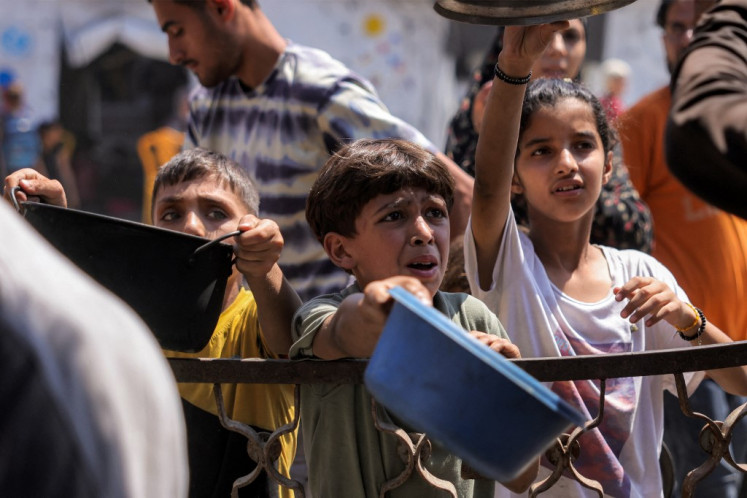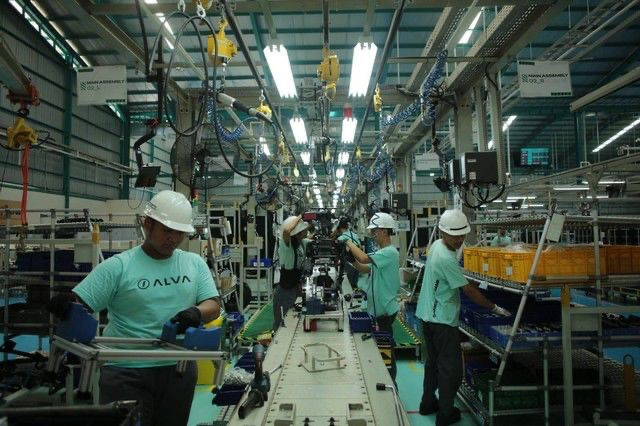Popular Reads
Top Results
Can't find what you're looking for?
View all search resultsPopular Reads
Top Results
Can't find what you're looking for?
View all search resultsRI, US need to build controls to prevent biological weapons
The US State Department’s assistant secretary for international security and nonproliferation, Thomas Countryman, is currently visiting Jakarta
Change text size
Gift Premium Articles
to Anyone
T
he US State Department’s assistant secretary for international security and nonproliferation, Thomas Countryman, is currently visiting Jakarta. The Jakarta Post’s Mustaqim Adamrah talked to ountryman on Tuesday about nuclear threats in the Asia-Pacific region, as well as US plans to sign the protocols of the Southeast Asia Nuclear-Weapon-Free Zone Treaty and ratify the Comprehensive Nuclear-Test-Ban Treaty. Below are excerpts from the interview.
Question: What is the US’ policy to prevent the spread of nuclear, chemical and biological weapons, especially in the Asia-Pacific region?
Answer: President [Barack] Obama in his speech in Prague in 2009 made it clear that the United States’ goal is to eliminate the threat of nuclear weapons in the world.
We’ve made real progress, with the US and the Russian federation agreeing on a new START [Strategic Arms Reduction Treaty] to reduce the number of nuclear weapons that we hold.
We’ve also made progress in seeking to prevent North Korea and Iran from advancing toward their respective goals of developing nuclear weapons.
Nevertheless, we believe that particularly in Southeast Asia, we need to keep working with our very responsible partners on the international stage, such as Indonesia, to prevent proliferation, to prevent countries from trading in the kinds of material that would allow them to build these weapons.
What kind of cooperation has the US built with Indonesia in this regard?
We enjoy excellent cooperation with Indonesia as part of a comprehensive partnership. This includes cooperation in such areas as biological security.
To be honest, I worry more about the threat of biological disasters than I worry about the threat of nuclear disasters. And it’s important that Indonesia -- and other countries — that we all work together in order to be prepared for either a natural outbreak or terrorist release of a biological disease.
Second, we are working with Indonesia in seeking to build trade controls, so that Indonesia can be certain what goods are being imported, exported and being moved through its territories; and can be certain that its territory is not being misused by people who are seeking to develop these kinds of weapons.
What are the frameworks to ensure that no one misuses Indonesia’s territory?
There are several. Each country must determine its own legal framework. There are standards that the United Nations is promoting; the example here is UN Security Council Resolution 1540 from 2004, which requires every state to put in place a legal framework to prevent the proliferation of nuclear, biological, and chemical weapons.
It does not mean that every country has exactly the same legal framework.
But the United States, as well as the European Union and other partners, can work with the government of Indonesia to help design the right legal framework and to help develop the capability of police, port authorities, and customs to enforce those regulations, and to prevent proliferators from misusing Indonesia’s territory.
The US wants to prevent the spread of nuclear weapons. However, it has not signed the protocols of the Southeast Asia Nuclear-Weapon-Free Zone Treaty, nor has it ratified the Comprehensive Nuclear-Test-Ban Treaty. How do you see this issue?
On the Southeast Asia Nuclear-Weapon-Free Zone [Treaty], Secretary of State Hillary Clinton last year promised the United States would work on this and we have. We have met our partners in the P5, the permanent members of the Security Council, and we’ve met together with ASEAN.
Indonesia, in leading the ASEAN side in this discussion, has been a very strong partner. I am very optimistic that we will in the near future be able to fulfill Secretary Clinton’s promise and sign the protocols, accepting the Southeast Asia Nuclear-Weapon-Free Zone [Treaty].
On the Comprehensive Nuclear-Test-Ban Treaty, both the United States and Indonesia have signed it, but both Indonesia and the US still need to ratify it.
I think the political process in both countries is complex … I hope that Indonesia’s Houe of Representatives will ratify this very soon. I know that President Obama is determined to obtain ratification from the United States’ Senate.
What is the most concerning issue right now to the US in the Asia-Pacific region from the standpoint of non-proliferation?
If it’s the challenge of attaining the goal that we share with France, China, Russia, Japan and throughout Asia, [the issue] is … seeing the Korean Peninsula denuclearized.
The Six Parties agreed to that goal more than 15 years ago. The agreement has since been violated by North Korea in its pursuit of nuclear weapons.
I realize North Korea has many reasons as to why they pursue their program. But the fact remains that we have a situation with the Korean Peninsula that is not stable, given the possession of nuclear weapons by the North.
We should work together, so that North Korea participates constructively in the Six-Party Talks, so that we can reaffirm the necessity of denuclearizing the Korean Peninsula and prevent proliferation by North Korea sending nuclear, or other, technology to other countries around the world.










